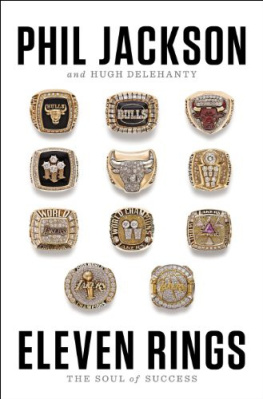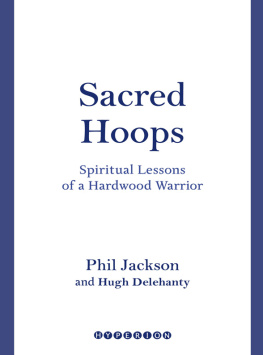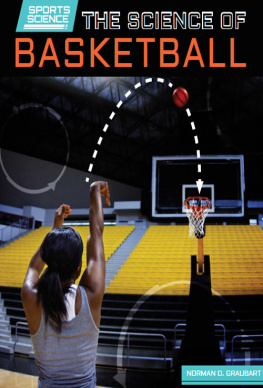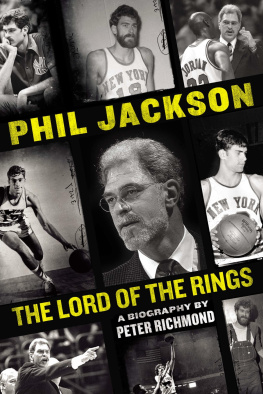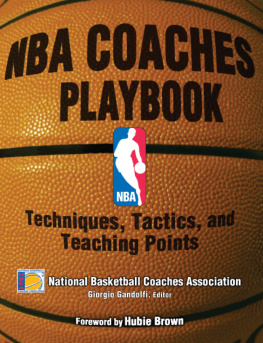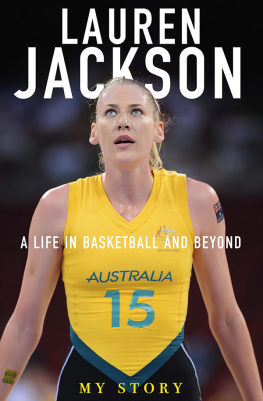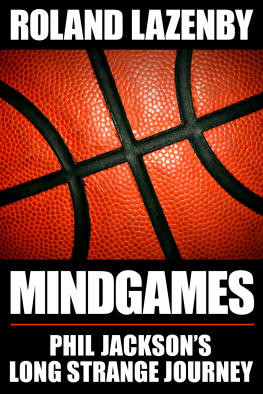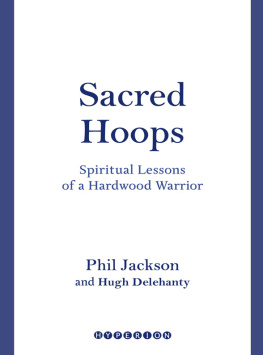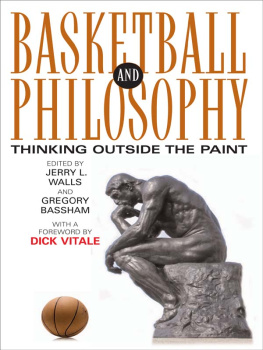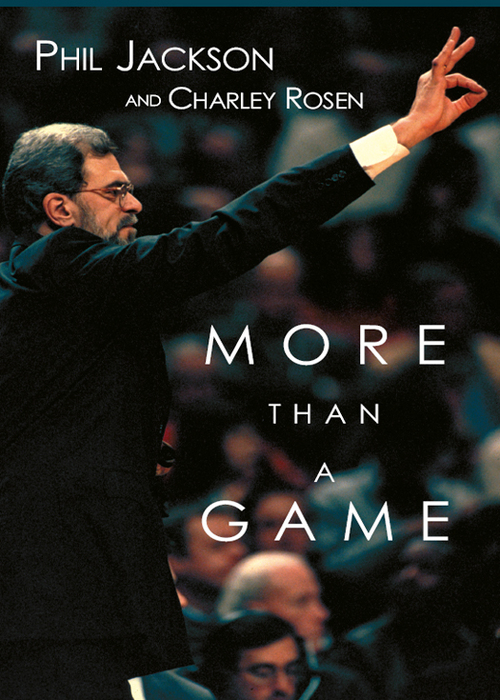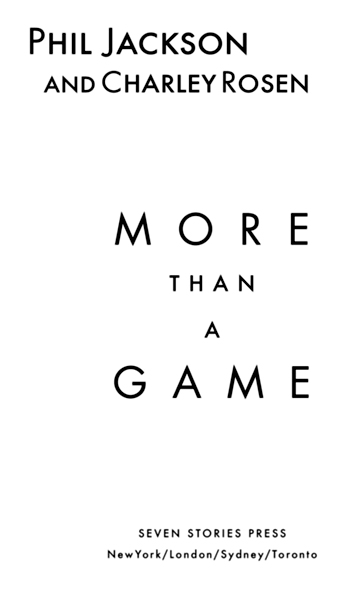ALSO BY PHIL JACKSON
Maverick with Charley Rosen (1976)
Sacred Hoops: Spiritual Lessons of a Hardwood Warrior (1996)
ALSO BY CHARLEY ROSEN
FICTION
Have Jump Shot Will Travel (1975)
A Mile Above the Rim (1977)
The Cockroach Basketball League (1992)
The House of Moses All-Stars (1997)
Barney Polans Game: A Novel of the 1951 Basketball Scandals (1998)
NON-FICTION
Maverick with Phil Jackson (1976)
Scandals of 51: How the Gamblers Almost Killed College Basketball (1978)
God, Man and Basketball Jones (1979)
Players and Pretenders (1981)
Copyright 2001 by Phil Jackson and Charley Rosen
A Seven Stories Press First Edition
All rights reserved. No part of this book may be reproduced, stored in a retrieval system, or transmitted in any form, by any means, including mechanical, electric, photocopying, recording or otherwise, without the prior written permission of the publisher.
Seven Stories Press
140 Watts Street
New York, NY 10013
www.sevenstories.com
Library of Congress Cataloging-in-Publication Data
Jackson, Phil.
More than a game / Phil Jackson and Charley Rosen
p. cm.
eISBN: 978-1-60980-262-2
1. Jackson, Phil. 2. Basketball coachesUnited StatesBiography. 3. Los Angeles Lakers (Basketball team) 4. Rosen, Charles. I. Rosen, Charles. II. Title
GV884.J32 A34 2001
796.323092dc21
[B]
00-050957
College professors may order examination copies of Seven Stories Press titles for a free six-month trial period. To order, visit www.sevenstories.com/textbook, or fax on school letterhead to (212) 226-1411.
v3.1
In remembrance of RED HOLZMAN,
my mentor and coach, who always said,
Basketball isnt rocket science;
its about putting the ball in at one end
and about defending the basket at the other;
and its about people playing together.
PHIL
To DAIA, whose courage and honesty
inspire me to be truthful about myself.
CHARLEY
C ONTENTS
I. GETTING THERE
ONE
PHIL D. BASKET
CHARLEY
W hen he coached the Chicago Bulls, Phil Jacksons game plan was to create a secure yet open environment that could develop the character and chemistry of his players. Finding a workable balance between freedom and discipline was not an easy task, especially when dealing with mega-stars and their mega-egos. Part of Phils method is always to set goals that are higher than the ones required by the situation at hand, so that anybody traveling along with him can sense a greater journey beyond the immediate concerns of winning ball games.
Over time, Phils efforts to discover that environment took on the qualities of a search for the Holy Grail. Eventually, he hooked up with Tex Winter, who had the magic playbook in his hand. With Tex acting as Merlin to Phils Galahad, miracles were wrought.
The latest miracle was Phils ability to motivate a young and immature team like the Lakers to accept an unselfish philosophy and thereby win a championshipand do it all in his very first season in Los Angeles.
But Ive been traveling along with Phil for nearly thirty years, and one of the things Ive learned from him is to always expect the unexpected.
I first met PJ at a postgame party in the spring of 1973 in his loft on West Nineteenth Street, brought there by a mutual friend, Stan Love, a six-foot-nine well-credentialed hippie and part-time powerless forward for the Baltimore Bullets. Having been Sport magazines pro basketball beat writer for a year or two, Id encountered numerous NBA super-duper-stars and found most of them to be totally self-involved. Even the wondrously humble Julius Erving had been three hours late for an appointment. But Phil was obviously of a different breed.
For starters, instead of being a deluxe townhouse or duplex penthouse apartment, Phils loft was situated above a Great Bear auto-body shop. (As I would soon discover, the noise and fumes rising through the floorboards severely limited the livable sections of the loft during business hours.) I was the only celebrant at the party whom Phil did not know, yet he was very solicitous in his attentions, and sincerely curious about me.
Coincidentally, my current assignment for Sport was an article called The Soul Brothers, which was an exploration of three of the NBAs most insistent individualistsStan, of course, the quintessential Laguna Beach Love child; Billy Paultz, a beer-chugging native New York party mammal extraordinaire; and John Hummer, an authentic Princetonian and putative Chaucerian scholar. A sudden impulse moved me to ask Phil if he might be interested in being included in my story. That would be interesting, he said.
In part, this is how Phils section came out:
Playing basketball is just like everything else:
They own your body and they try to own your head.
Phil Jackson, player, New York Knicks
Jacksons body and head co-exist in a loft on New Yorks lower West Side. Theres a hammock suspended from the ceiling of the living room, a dart board with Spiro Agnews face serving as the target, and on the far wall a photograph taken by Phil of a Colorado mountain.
Phil was throwing a party to celebrate Saturday night and the dozen or so guests seemed to be very comfortable with each other. A bag of walnuts lay casually torn open on the living room table, a bottle of wine occasionally made the rounds, and someone was melodiously banging on the piano in the corner.
But the most revealing thing in the room was Jacksons record collectiona dust-covered stack which included the likes of Andy Williams and Frank Sinatra, and then the active stackthe Grateful Dead, the Allman Brothers, et al.
My taste in people has changed also, Phil said. None of my friends are basketball people. Aside from Bill Bradley, I never really had a friend on the Knicks. Because of the pressure, the inconvenience, and the competition, you have to stop at a certain level. With your teammates, you get down to everything but your personal lives.
Jackson has started maybe twenty games in his tenure with the Knicks, but his bed-spring hair, his mustache and his Ichabod Crane body are as well-known to every basketball fan as Jerry Wests nose.
Its like living in a smaller world, Jackson continued, a complete world but just a lot smaller. And, in a way, professional sports is just like the real worlda lot of people have invested a lot of money and that leads to politicking and pressure situations. Kids come into the league and get big money right off the bat, and the guys getting the bread have to play, even if someone else is better.
When Jackson was a rookie out of the University of North Dakota in 1968, he was a second round draft choice and signed a one-year contract for $13,500.
Bill Bradley turned pro basketball around, Phil said. In 1968, he got $400,000 for four years, which was an incredible sum then. After his first game at the Garden I couldnt find a seat in the locker room because there were fifty reporters around. I mean people from Time and Life. Bradley was a public figure to the nth degree. He had the romantic Princeton-Rhodes Scholar thing going for him, but mainly, he was the latest white hope. Pro basketball is dominated by black players, but the people who own the sport, pay to see it live, sponsor it on TV and write about it are white. So they all focused on Bradley.


